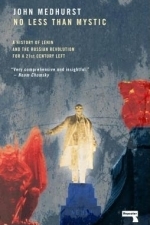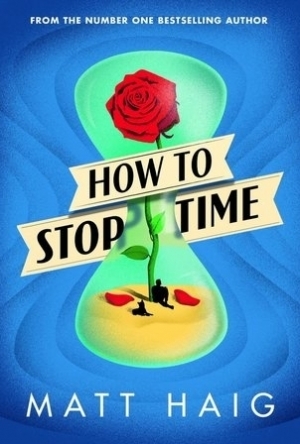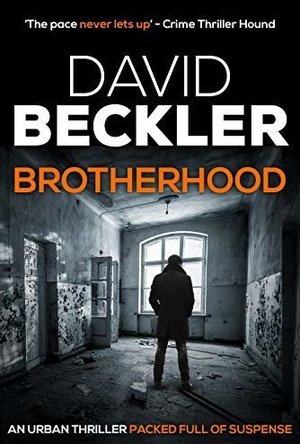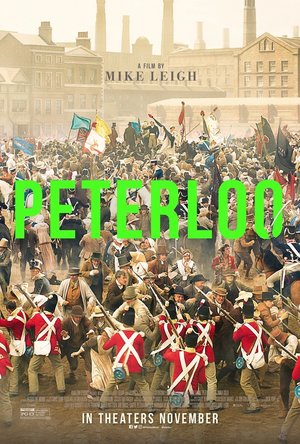Hazel (1853 KP) rated No More Than Mystic in Books
Dec 7, 2018
No Less Than Mystic: A Story of Lenin and the Russian Revolution for a 21st Century Left</i> by John Medhurst is an in-depth historical and political insight to the truth about what really happened in Russia before, during and after the Bolshevik insurrection of October 1917. Beginning with the end of the Tsars rule and ending with Stalinism, Medhurst unearths the fact from the fiction, challenging the information the world has been led to believe.
As mentioned in Medhurst lengthy introduction, previous books on the subject are often biased and inaccurate. Swayed by political beliefs, authors and historians often pass judgement by using the information they have chosen to believe, dismissing anything that goes against their viewpoint. In this book, Medhurst filters through these false histories, preferring to cite from publications written at the time rather than those penned by people who did not witness the events between 1903 and 1921.
Medhurst’s narrative is more political than historical, often going off on tangents. In order to for the reader to obtain some sort of connection with the events described, the author contrasts them with more recent occurrences that readers may have observed or at least understand. These include the British miner’s strike, feminist movements, the Greek economy and a variety of other capitalist struggles.
The Russian revolution is a complex affair that cannot easily be condensed. As a result, <i>No More Than Mystic</i> exceeds 600 pages and covers every event, no matter how big or small, that contributed to the rise of USSR. Russia was a dangerous place to live during the 20th century, particularly when Leninism spiralled into Stalinism. However, Leninism was not all the history books make it out to be.
During GCSE History, one teacher led his class to believe that Lenin was good and Stalin was bad, however, the reality was much more complicated than that. Lenin was not the good guy that many painted him to be. Thousands died as a result of his policies from both execution and starvation. Yet, at the same time, Medhurst tries to point out the reasoning behind the ideas of the communist rulers, refusing to give a personal opinion without laying bare both sides of the argument.
Although this book is accurate and educational, it is not the easiest to sit down and read. Extensive chapters full of mind-numbing information detract from the comprehensive insightfulness of the content. Notwithstanding the fact that the inclusion of contrasting capitalist examples helps the reader to establish some form of familiar ground, the sudden changes in topic, location and time period are often confusing and hard to follow.
<i>No Less Than Mystic </i>is for the intellectual person with a great interest in 20th-century Russian history and communist affairs. Without any prior education on the topic, this book will not mean anything. It attempts to challenge the ingrained beliefs people have about what happened during the Bolshevik insurrection. Those who do not know anything will not benefit from the confronting enlightenment.
In all, <i>No Less Than Mystic</i> is a well-researched academic text that brings a fresh history of Lenin and the Russian Revolution. Those who want an unbiased truth need to read this book and be sceptical about any other on the topic. In order to form opinions, one must know the facts.
Hazel (1853 KP) rated How to Stop Time in Books
Jun 30, 2017
All the world’s a stage/And all the men and women merely players/They have their exits and their entrances/And one man in his time plays many parts …
How to Stop Time is British author Matt Haig’s latest novel, and a very interesting one it is, too. In the present day, Tom Hazard is a 40-something-looking man who has landed himself with the position of history teacher at a comprehensive school in Tower Hamlets. Despite not having any formal training, Tom is the perfect candidate for the position because, despite his looks, he is 439 years old. But, that is a secret that no one must ever discover.
The book jumps back and forth between the current time period and flashbacks to various events during Tom’s extensive past. Born in 1581, Tom has experienced a great part of British history and major events around the world. Constantly changing his name and identification, he moved around the world, switching locations whenever people began to get suspicious of his never-aging body.
After a couple of centuries, Tom met a man with the same condition as himself, who revealed that there were many people in the same predicament. Promising to be able to help keep him safe, the stranger coerces Tom into a union called the Albatross Society. There are many rules and conditions to follow, however, the most important advice is to never fall in love. Unfortunately, Tom has already done this.
In London 1623, Tom met the love of his life, Rose, who he eventually married and with whom he had a daughter. Although Tom does age, it is at the rate of one year every 15; therefore he eventually had to leave his family in order to keep them safe. However, his daughter Marion has inherited his condition and Tom spends his subsequent years trying to find her. With promises to help him on his quest, Tom reluctantly joins the Albatross Society, despite their questionable ways.
All Tom wants is to be able to lead a normal life, yet the narrative reveals how impossible this has been, both in the past and now in the present. From Elizabethan England to Elizabeth II’s reign, Tom lives through several monarchs, wars, colloquial changes, industrialisation, sanitisation of comestibles, and the introduction of digital technology. Without the added pressure of keeping his true identity disguised, it is very interesting to experience historical events through the eyes of the protagonist.
The ending, unfortunately, does not quite satisfy the growing excitement and interest of the rest of the novel. Important things happen too quickly, making it confusing to understand the main storyline. The majority of the story appears to only be setting the scene for the final couple of chapters, but as this is so fascinating, there cannot be too much complaint.
Presuming that Haig has done his research and that the historical periods are factually correct, How to Stop Time is as educational as it is entertaining. History lovers will enjoy reading about famous people such as Shakespeare and Charlie Chaplin, as well as getting an insight into the daily lives of past societies. Most importantly, Tom is a captivating character, who, despite having lived for four centuries, is still as socially awkward as the best of us.
How to Stop Time contains a fantastic concept about the progression of time and aging, but its most poignant point is the emphasis on finding and being you. Change is an inevitable certainty, as witnessed by Tom whose current world looks nothing like his memories. Although people must adapt to the on-going changes, living how you want is more important than adjusting to fit in with everyone else. In essence, do not be afraid to let the world see your true self.
ClareR (6054 KP) rated Brotherhood in Books
Apr 2, 2019
Byron is helped by his friend Adam, who was in the Marines with him, and they try to solve the murder to hopefully exonerate Philip.
I really enjoyed this book. Byron and Adam seemed like really nice people, believe it or not, even though they knew how to handle themselves and there was consequently a fair bit of violence!
There was the added interest and/ or complication of an African child soldier who had been adopted by a British couple. I really felt very sad for him as I read his flashbacks; he had led an awful, violent childhood.
This looks as though it’s the start of a really good series. I liked that Byron and Adam appeared to have an equal status in their little team, and the police officers and procedures all seemed genuine to me (but then I’m not a police officer!). It was such a fast, exciting read, and I really did gasp out loud a couple of times whilst I was reading! I’ll be interested to see where this series goes next.
Many thanks to Sapere books for my copy of this book, which I hope I’ve fairly reviewed!
Awix (3310 KP) rated Peterloo (2018) in Movies
Nov 9, 2018 (Updated Nov 9, 2018)
Not quite as punishingly didactic as it sounds, but this may not have been intentional: what may also have been an accident is how close the film frequently comes to being actually quite funny. There are some spectacular wigs and hats, startling accents, and very broad performances from most of the cast - it almost feels like a parody of a bad costume drama in places. There's a scene where a family of semi-literate mill-workers pause to discuss the economic effects of the Corn Laws in some detail, mostly for the audience's benefit, while another scene arguably recycles a Monty Python gag. Casting someone from Blackadder as the Prince Regent was probably a misstep, too.
Still, it all reeks with conviction and moral outrage, and in the end the Peterloo massacre itself is staged quite well - though I still think it could have been handled slightly more cinematically. This is the movie equivalent of someone who hands out the Socialist Worker in the street: the intentions are so laudable that you kind of feel obliged to indulge the earnest lack of self-awareness. Looks quite good too.

The Man in White Boots: The Biography of Alan Ball, the Youngest 1966 World Cup Hero
Book
It is a special footballer who wins the World Cup as a 21-year-old and ends a two-decade career as...
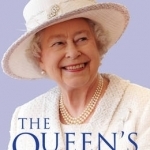
The Queen's Speech: An Intimate Portrait of the Queen in Her Own Words
Book
On 9 September 2015, Queen Elizabeth II will become the longest-serving monarch in British history....

Women Warriors: Ten Courageous Lives of Women Who Went to War
Book
After her beloved husband was forced to fight for William II, Mrs Christian 'Kit' Welsh was not...

Slim Jim: Simply the Best
Book
Jim Baxter was one of Scotland's greatest-ever football players, a left-footed wonder who became a...

Boy About Town
Book
'I was no longer fitting in at school. I was unsure of my friends, and they were increasingly unsure...
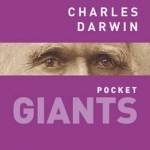
Charles Darwin: pocket GIANTS
Book
When Darwin announced his theory of evolution by natural selection, he did more than transform...
